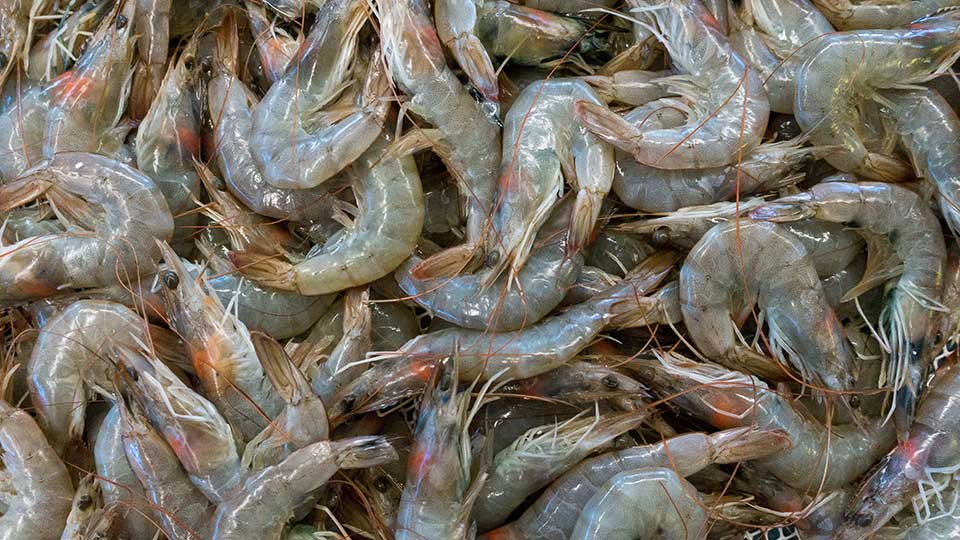If you’re a cat lover like me, you may want to spoil your furry friend with some delicious treats occasionally.
And what could be more tempting than a juicy shrimp?
But before you share your seafood with your kitty, you might wonder: can cats eat raw shrimp? Is it safe and healthy for them? Or should you cook it first?
In this post, I’ll answer these questions and more, based on my experience and research.
I’ll also share some tips on preparing shrimp for your cat and what to avoid when feeding them this tasty snack. Let’s dive in!
Is Raw Shrimp Healthy for Cats?
The short answer is yes, cats can eat raw shrimp, and it can be healthy for them.
However, there are some risks and precautions to consider before feeding raw shrimp to your cat.
First, cats are carnivores, meaning they need meat to survive and thrive.
Shrimp is a great source of animal protein, which is essential for your cat’s growth, development, and maintenance.
Shrimp also contains other nutrients that can benefit your cat’s health, such as:
- Vitamin B12: This vitamin helps your cat’s nervous system function properly, and prevents anemia and nerve damage.
- Omega-3 and omega-6 fatty acids: These fats help your cat’s skin and coat stay healthy, and reduce inflammation and allergies.
- Choline: This nutrient supports your cat’s brain and liver health, and helps metabolize fats.
- Antioxidants: These substances protect your cat’s cells from oxidative stress and damage, and boost their immune system.
Raw shrimp is also low in calories and fat, which makes it a good treat for cats who need to watch their weight.
However, raw shrimp also has a high cholesterol content, which can cause problems for cats with high blood pressure or heart disease.
Shrimp should only be given as an occasional treat, not a regular part of your cat’s diet.
Another risk of feeding raw shrimp to your cat is the possibility of contamination.
Raw shrimp can contain harmful bacteria, such as salmonella or E. coli, that can cause food poisoning in your cat.
Raw shrimp can also contain pesticides and chemicals that harm your cat’s health.
To avoid these risks, you should always buy fresh, high-quality shrimp from a reputable source, and wash it thoroughly before feeding it to your cat.
Do Cats Like Raw Shrimp?
Most cats love the taste of raw shrimp, as it appeals to their instincts and preferences.
Cats are attracted to the fresh shrimp’s aroma and the cold, raw texture.
Raw shrimp also has a stronger flavor than cooked shrimp, which makes it more enticing for cats.
However, not all cats like raw shrimp, or seafood in general.
Some cats may have different tastes or preferences or be allergic or intolerant to shrimp.
You should always gradually introduce new foods to your cat, and monitor their reaction after feeding them.
If you notice any signs of digestive issues or allergies, such as vomiting, diarrhea, itching or swelling, you should stop feeding them shrimp and consult your vet.
Can Cats Eat Home-Cooked Shrimp?
Yes, cats can eat home-cooked shrimp as well.
In fact, some vets recommend cooking the shrimp before feeding it to your cat, as it eliminates the risk of bacterial infection or contamination.
Cooking the shrimp also makes it easier for your cat to digest and absorb the nutrients.
However, there are some things to keep in mind when cooking shrimp for your cat:
- Remove the shell and tail: The shell and tail of the shrimp can be a choking hazard for your cat, or cause intestinal blockage or damage. You should always remove them before cooking or feeding the shrimp to your cat.
- Don’t use any oils or seasoning: Oils can add unnecessary calories and fats to the shrimp, which can cause weight gain or pancreatitis in your cat. Seasoning can upset your cat’s stomach or cause allergic reactions. You should cook the shrimp plain, without any butter, salt, garlic, onion, or spices.
- Cook thoroughly and cool completely: You should cook the shrimp until it turns pink and opaque throughout, which means it is fully cooked and safe for your cat to eat. You should also let the shrimp cool completely before offering it to your cat, as hot food can burn their mouth or throat.
What are the Health Benefits of Cooked Shrimp for Cats?
Cooked shrimp has similar health benefits to raw shrimp for cats, providing protein and other nutrients that support their overall well-being.
However, cooked shrimp may have some advantages over raw shrimp regarding safety and digestibility.
Cooked shrimp is safer for cats because it kills any harmful bacteria or parasites that may be present in raw shrimp.
This reduces the risk of food poisoning or infection in your cat, which can cause severe illness or even death.
Cooked shrimp also removes any pesticides or chemicals on the surface of raw shrimp, which can harm your cat’s health.
Cooked shrimp is also easier for cats to digest and absorb, as it breaks down the proteins and fats in the shrimp.
This makes it more suitable for cats with sensitive stomachs or digestive issues, older or with dental problems.
Cooked shrimp also has a softer texture than raw shrimp, which makes it more comfortable for your cat to chew and swallow.
How Do I Cook Shrimp for My Cat?
Cooking shrimp for your cat is easy and quick, and you don’t need any special equipment or ingredients. Here are the steps to follow:
- Rinse the shrimp under cold water and pat them dry with paper towels.
- Peel off the shell and tail of the shrimp and discard them.
- Place the shrimp in boiling water and cook for about 3 minutes, or until they turn pink and opaque.
- Drain the shrimp and let them cool completely on a plate.
- Cut the shrimp into small pieces appropriate for your cat’s size and appetite.
- Offer the shrimp to your cat as a treat, or mix it with their regular food.
You can also cook the shrimp in other ways, such as steaming, baking, or grilling, as long as you don’t use any oils or seasoning.
You can also freeze the cooked shrimp for later use, but make sure to thaw them completely before feeding them to your cat.
Is Processed Shrimp Good for Your Cat?
Processed shrimp is not good for your cat, as it contains additives and preservatives that can harm your cat’s health.
Processed shrimp includes canned, dried, smoked, or flavored shrimp, often high in sodium, sugar, artificial colors, or flavors.
These ingredients can cause dehydration, kidney damage, diabetes, obesity, or allergic reactions in your cat.
You should always feed your cat fresh or frozen shrimp that is plain and unseasoned.
You should also avoid feeding your cat any human foods containing shrimp, such as sushi, shrimp cocktail, or shrimp salad, as they may have other toxic or unhealthy ingredients for your cat.
What’s the Difference Between Warm-Water and Cold Water-Shrimp?
Shrimp can be classified into two types based on the temperature of the water they live in: warm-water and cold-water shrimp.
Warm-water shrimp are usually larger and more colorful than cold-water shrimp and have a sweeter and milder flavor.
Cold-water shrimp are usually smaller and less colorful than warm-water shrimp and have a firmer and more salty flavor.
Both types of shrimp are safe and healthy for your cat to eat, as long as they are fresh and properly cooked.
However, some cats may prefer one type over another based on taste or texture.
You can experiment with different types of shrimp to see what your cat likes best.
Can Cats Eat Shrimp Shells and Shrimp Tails?
No, cats should not eat shrimp shells and tails, as they can be dangerous for them.
Shrimp shells and tails are hard and sharp, and they can cause choking, gagging, or vomiting in your cat.
They can also damage your cat’s mouth, throat, stomach, or intestines, leading to bleeding, infection, or obstruction.
You should always remove the shell and tail of the shrimp before feeding it to your cat, whether it is raw or cooked.
You should also dispose of them properly so that your cat doesn’t get access to them.
Are Cats Allergic to Shrimp?
Some cats may be allergic to shrimp, as it is a common allergen among animals and humans.
Shrimp allergy is a type of food allergy that occurs when your cat’s immune system reacts to the proteins in the shrimp.
This can cause symptoms such as:
- Itching
- Swelling
- Hives
- Sneezing
- Coughing
- Wheezing
- Vomiting
- Diarrhea
- Anaphylaxis (a severe allergic reaction that can be life-threatening)
If you notice any of these signs after feeding your cat shrimp, you should stop immediately and contact your vet.
Your vet can diagnose your cat’s allergy and prescribe medication or treatment to relieve their symptoms.
Your vet may also advise you to avoid feeding your cat any seafood or fish products in the future.
Final Thoughts
Shrimp can be a delicious and nutritious treat for your cat if you feed it properly.
Raw or cooked shrimp can provide protein and other nutrients that support your cat’s health and well-being.
However, you should also be aware of the risks and precautions when feeding your cat shrimp.
You should always buy fresh, high-quality shrimp from a reputable source, and wash it thoroughly before feeding it to your cat.
You should also remove the shell and tail of the shrimp, and cook it plain and thoroughly to avoid the risk of bacterial infection or contamination.
You should only feed your cat a small amount of shrimp once or twice a week, and not as a regular part of their diet.
You should also monitor your cat’s reaction after feeding them shrimp, and stop if you notice any signs of digestive issues or allergies.
Shrimp can be a great way to spoil your cat and add variety to their diet, as long as you do it safely and responsibly. Your cat will thank you for it!







